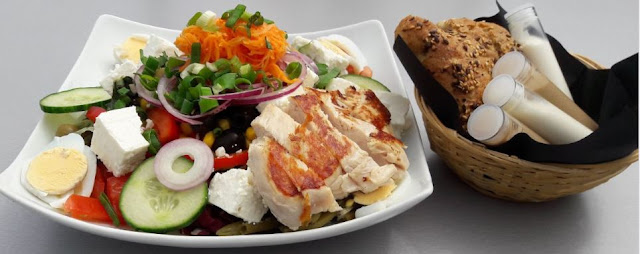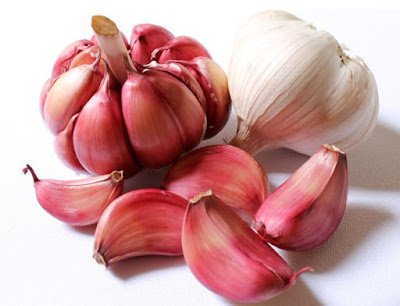There is no magic food or diet that can prevent or cure COVID-19.
Written by Taibat Ibitoye
 |
| health food |
Fake news circulated on social media, saying that "superfoods" can cure COVID-19. Danijela Maksimovic/Shutterstock Taibat Ibitay, University of Reading
Since the outbreak of the new coronavirus (SARS-CoV-2) worldwide, social media has generally claimed that certain foods and supplements can prevent or cure COVID-19. Even if the World Health Organization (WHO) tried to eliminate the myth surrounding the "miracle" food and coronavirus, the error message continues to spread.
Although all of us want to protect ourselves from COVID-19, there is currently no evidence that eating certain foods or following certain diets will protect you from coronaviruses. Here are some of the most frequently debunked myths:
Myth 1: Garlic

garlic

There is evidence that garlic has an antibacterial effect, prior studies have shown that garlic active compound (including allicin, diallyl disulfide, and allyl alcohol) having a protective effect on certain types of bacteria Salmonella and Staphylococcus aureus. However, studies of garlic's anti-viral properties are limited.
Although garlic is considered a health food, there is no evidence that eating it can prevent or cure COVID-19.
Myth 2: Lemon
 |
| lemon |
A viral video from Facebook claimed that drinking warm water with lemon slices can resist new coronaviruses. However, there is no scientific evidence lemon can cure the disease.
Lemon is a good source of vitamin C, which is important for helping the immune cells work properly. However, many other citrus fruits and vegetables contain vitamin C.
Myth 3: Vitamin C
As mentioned earlier, vitamin C is known to play a role in supporting the normal function of the immune system. But not the only nutrients to maintain the immune system. Most misinformation about vitamin C and coronavirus comes from research that investigates the link between vitamin C and the common cold. Despite claims online that vitamin C can prevent and treat common colds, the supporting evidence is not only limited but also conflicting. There are also significant differences between the common cold and coronavirus.
There is no strong evidence that vitamin C can prevent or cure COVID-19.
Most adults will meet their vitamin C requirements of the diet includes a variety of fruits and vegetables.
Misunderstanding 4: alkaline food
Misinformation spread on social media suggests that the virus can be cured by eating food with a pH value (acidity level) higher than the virus pH value. A pH value below 7.0 is considered acidic, a pH value of 7.0 is neutral, and a pH value above 7.0 is alkaline. Some "alkaline foods" that are said to "cure" coronavirus include lemon, lime, orange, turmeric tea, and avocado.
However, many of these online resources provide incorrect pH values for these foods. For example, it is said that the pH of lemon is 9.9, but in fact, its acidity is very high, a pH of 2. It is said that acidic food becomes alkaline after being metabolized by the human body.
Overall, there is no evidence that food can even affect the pH of blood, cells, or tissues, let alone cure viral infections. The body regulates acidity levels, no matter which food is consumed.
Misunderstanding 5: Keto diet
 |
Keto diet
The ketogenic (ketone) diet is said to be a high-fat, low-carbohydrate diet that prevents COVID-19.
A ketogenic diet cannot prevent coronavirus. Yulia Furman / Shutterstock
This stems from the idea that it can "strengthen" the immune system. One study showed that although one may prevent or treat influenza, this study used a mouse model. This makes it difficult to know whether ketones will have similar effects on humans in preventing or treating flu.
There is currently no scientific evidence to prove that a ketogenic diet can prevent coronavirus.
Current suggestion
British Dietetic Association (BDA) represents no particular food or supplements that can prevent others from infection COVID-19. In addition to WHO recommendations, BDA encourages people to eat a healthy balanced diet to support the immune system.
A healthy and varied diet contains five major food groups that can help most people to provide the necessary nutrients. Most of the nutrients we have obtained from our regular diet (including copper, folic acid, iron, zinc, selenium, and vitamins A, B6, B12, C, and D) are related to maintaining normal immune function.
People are also encouraged to take measures to prevent COVID-19's, including frequent hand washing, social distancing, and comply with lock command.
However, BDA does recommend that adults living in the UK supplement 10 micrograms of vitamin D daily and eat foods rich in vitamin D, such as oily fish, egg yolks, and fortified breakfast cereals, to ensure adequate vitamin D content. This is because our main source of vitamin D is sunlight-and because of lock-in measures, many of us do not get enough sunlight.
When it comes to online error messages, it can sometimes be difficult to find out. But in general, if the following conditions are met, the claim may be "forged":
It is recommended to eat specific foods, drinks or supplements (especially large doses) to cure and prevent coronavirus
Encourage the restriction of the main food in the diet
Pick out food to protect or treat the virus
When recommending a single food or supplement, include popular words-such as "cleansing", "curing", "treatment", "boost", "detox" or "superfood"
It is not provided by a reliable and trusted health agency or organization such as NHS or WHO.
Social media is a powerful and powerful tool. However, it may also be a catalyst for spreading misinformation. Most importantly, there are no magic foods or supplements that can protect people from new coronavirus infections. In addition, there is no EU-approved nutrition and health claims single food or supplement can resist viral infections, such as COVID-19.conversation







0 Comments